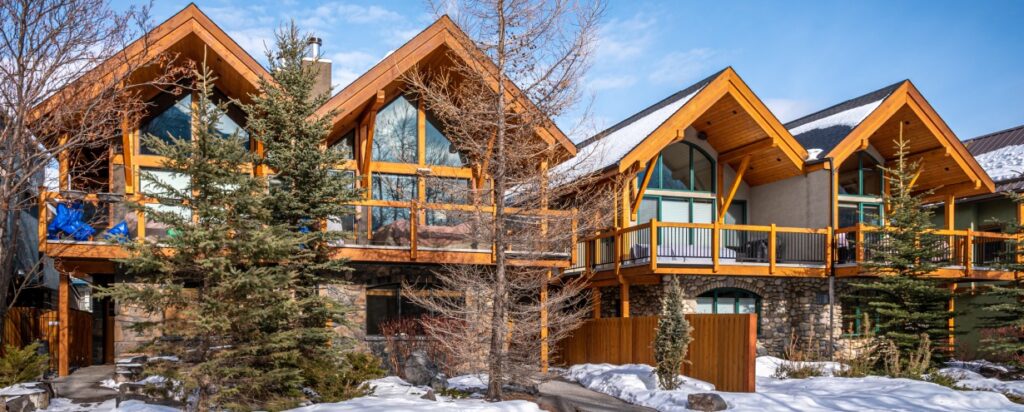Last Updated on February 23, 2024 by CREW Editorial
In the last decade, Airbnb has completely transformed the way people travel and invest.
With Canadian Airbnb hosts raking in a staggering $7.1 billion since 2010, it’s clear that short-term rentals can be more than just a place to stay—they’re a lucrative investment opportunity. But as the market evolves and the financial landscape shifts, you might wonder if it’s still a smart move to buy property for Airbnb in Canada.
Navigating the real estate market requires a keen eye for detail and a solid understanding of what you’re signing up for. It’s not just about picking a prime location; it’s about weighing the costs, the commitment, and the potential returns.
Factors to Consider When Buying a Property for Airbnb in Canada
Location
When you’re on the hunt for the perfect Airbnb property in Canada, understand that location tops the list of priorities. A property’s proximity to local attractions, ease of access to public transport, and overall appeal of the neighborhood significantly influence rental demand. It’s not just about being close to the hot spots; discover an area’s unique charm that could set your listing apart.
Consider the kind of guests you’ll attract with different locations. A city-centre apartment may appeal to business travellers, while a cottage by the lake could attract families seeking a tranquil retreat. Don’t just think about the present – look ahead to assess how the location might evolve. Is the area up-and-coming with planned developments that could increase traffic to your rental?
You also need to consider the various regulations that cities have started to put in place to curb the housing crisis by cracking down on Airbnb locations. Though not all cities have put laws into place regarding Airbnb, it’s essential to keep the possibility in mind when you are making investment plans.

Legalities and Regulations
Navigating the maze of legalities and regulations can be daunting, yet it’s imperative for operating a successful Airbnb in Canada. Start by investigating the need for business licenses specific to the city or town. Failing to comply could result in hefty fines or closure of your rental space.
Zoning bylaws are another critical component. These regulations determine whether you can operate a rental property in your chosen location. Consider operational requirements as well; every region has its own rules, from safety standards to noise control.
As we said, stay up-to-date with changes in legislation. As the short-term rental market evolves, so do the laws governing it. Keep abreast of province- and city-specific legislation and use Airbnb’s resources to remain compliant.
While the allure of earning potential from Airbnb rentals is strong, never underestimate the importance of location and adherence to legal frameworks. Ensuring compliance and selecting a prime spot could be your blueprint for a lucrative Airbnb venture.
The Pros of Investing in an Airbnb Property in Canada
High Rental Demand
You’ll find that the demand for short-term rentals is a compelling reason to invest in an Airbnb property. Airbnb’s presence in over 100,000 cities globally is testament to this demand, which doesn’t show signs of waning. In Canada, this trend is bolstered by tourists and business travelers alike who increasingly favor the personal touch and convenience of Airbnb accommodations over traditional hotels.
In major Canadian cities and desirable vacation spots, your property could benefit from a robust stream of visitors throughout the year. Locations close to landmarks, urban centers, or natural attractions tend to command higher occupancy rates, making them particularly attractive for Airbnb investments. This strong rental demand can lead to consistent income, making it a significant proponent in the investment equation.
Tips for Buying an Airbnb Property in Canada
When venturing into the realm of Airbnb investments in Canada, arm yourself with thorough knowledge and financial projections to navigate the market successfully.
Research the Market
You must conduct comprehensive market research before purchasing a property for Airbnb. Analyze locations not just for their present popularity but also for their occupancy rates, rental growth, and competition. It’s not enough to know which areas are in demand; understand the nuanced trends that could affect your investment.
Start by comparing various markets:
- Revenue
- Occupancy rates
- Growth rates
- Best-performing locations
- Property types and sizes
Gather data on the past and current performance of short-term rentals in desired locations. Consider how external factors, like the COVID-19 pandemic, impacted the tourism and short-term rental sectors.
Take note of regulations across different Canadian cities as they can vary significantly. For example, Toronto may have different short-term rental legislation compared to Montreal or Vancouver.
Calculate Potential Returns
Your Airbnb property isn’t just a piece of real estate; it’s a business. To get a realistic idea of the income it could generate, perform calculations based on different scenarios to gauge the investment’s potential.
When estimating the income, consider the following:
- Lower average prices of similar offerings by 10% as a starting point for your own pricing.
- Factor in realistic occupancy rates to account for days when the property might not be booked.
- Prepare for various outcomes:
It’s wise to estimate these figures on a monthly basis and juxtapose them with monthly expenses. This way, you can assess how the income stacks up against potential liabilities. Keep in mind that a simple change, such as a shift in interest rates or an unexpected maintenance cost, can impact the bottom line.

Remember, the profitability of an Airbnb in Canada will hinge on a blend of property size, demand, location, and occupancy rates. Stay flexible and be prepared to adapt your strategy to the market’s ebb and flow.
Conclusion
Armed with the right knowledge and tools you’re well on your way to making an informed decision about investing in an Airbnb property in Canada. Remember to stay abreast of the market conditions and regulatory landscapes which can impact your investment’s viability. Your ability to adapt and respond to these factors will be crucial in ensuring your venture’s success. With careful planning and a strategic approach you can navigate the complexities of the Airbnb market and potentially reap the rewards of a well-chosen property investment.









